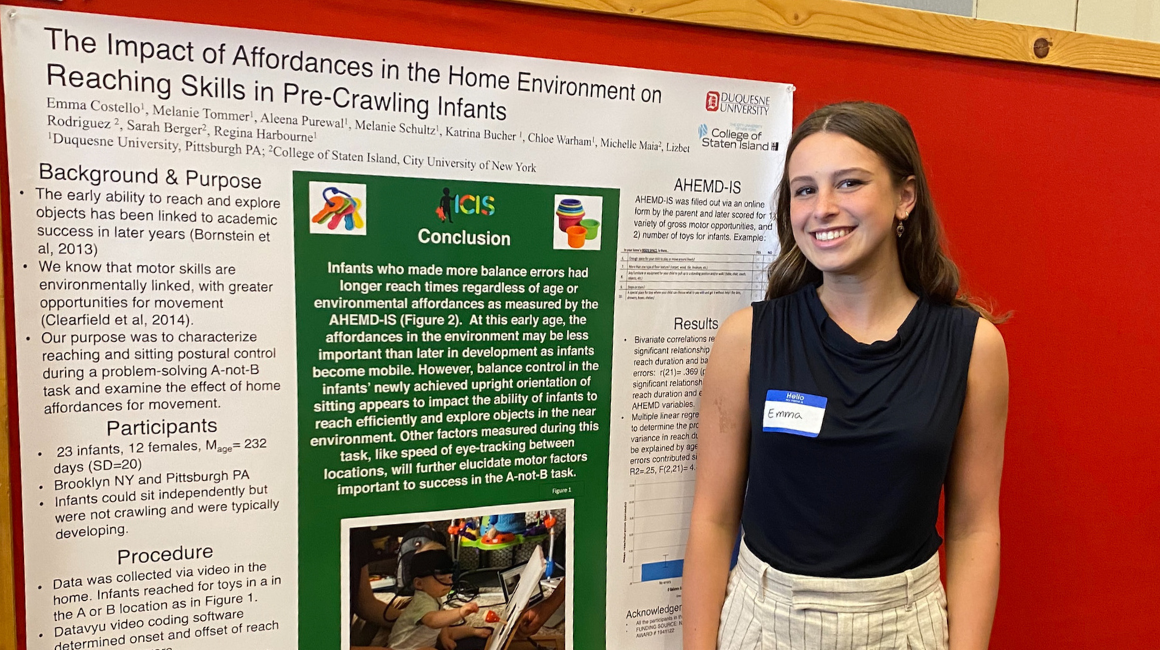An interest in what drives infants to explore their environment has led to an extraordinary opportunity for senior nursing student Emma Costello to present her subsequent research findings at the 2024 International Congress on Infant Studies in Glasgow, Scotland, in July.
“I love researching what makes infants want to explore their environment—exploring the environment leads to better motor skills and cognition,” says Emma. “I wanted to look specifically at whether gross motor toys (which foster growth-motor skills) made a difference in reaching skills.”
Emma’s research focused on the impact of environmental affordances—elements in a child’s surroundings, like a playroom or living room, that offer opportunities for interaction—on the reaching skills of pre-crawling infants. Her work involved the cognitive and motor testing at the infants’ homes, coding the data as well as the writing and presentation process.
“This research is directed by Dr. Regina Harbourne and is part of a larger interdisciplinary project at the Rangos School of Health Sciences, focusing on early intervention strategies utilized across many educational and medical disciplines,” Emma notes.
Despite finding that gross motor toys did not significantly influence reaching skills, Emma—the kind of problem solver who always things bigger—discovered that physical space, including outdoor play stairs and varied floor textures, plays a crucial role and correlate with reaching skills.
By identifying the correlation between physical space and motor skill development, Emma hopes to inform nursing practices and early childhood care. Educating nurses, physical therapists and occupational therapists about the signs of delayed development and the importance of early intervention can lead to better outcomes for infants in hospital settings, particularly those who spend extended periods confined to beds.
“More nurses need a seat at the table in decision-making and improving health care,” Emma adds. “One way is through research and writing skills.”
Emma first learned about this presentation opportunity through Sarah Berger, a colleague from their infant research lab in New York, who will also be a featured main speaker in Glasgow.
“Special thanks to Melanie Tommer, Aleena Purewal, Melanie Shultz, Katrina Butcher, Chloe Warham, and Dr. Regina Harbourne for their invaluable contributions.”
“I’m excited to meet people at the conference, and I love to learn,” Emma says. “As far as I know, I’m the only person that has this type of background on infant development presenting at the conference.”
Duquesne students like Emma learn important skills to build a fulfilling career and discover how their profession and their research can improve the lives of others. This research is supported by the Nation Science Foundation award #1941122.
“The opportunity to meet with professors and researchers at Duquesne has been phenomenal,” Emma explains. “Don’t be afraid to start research—the trick is to find something you’re interested in. Once you find something that you want to research, the rest is easy. I worked very hard, and I'm so proud of my research group and all that we have accomplished.”
News Information


